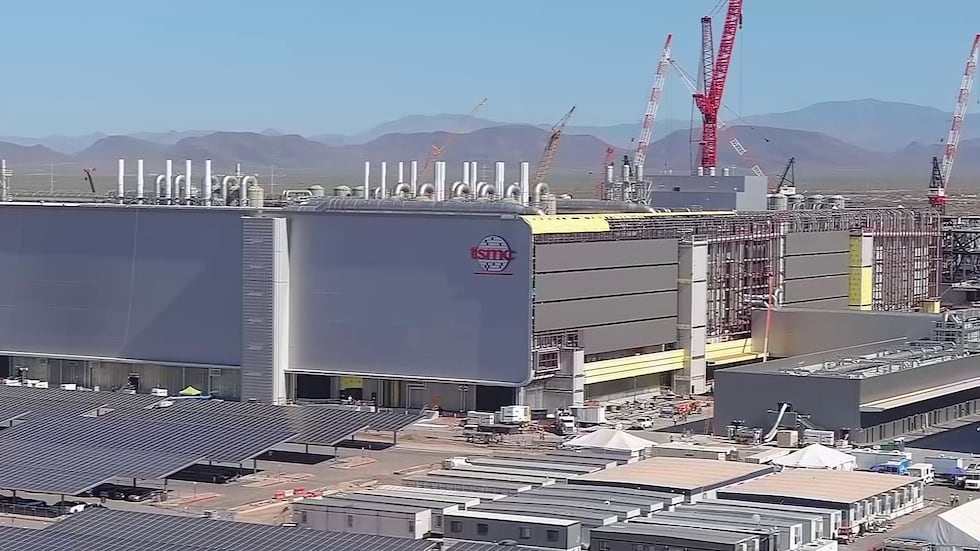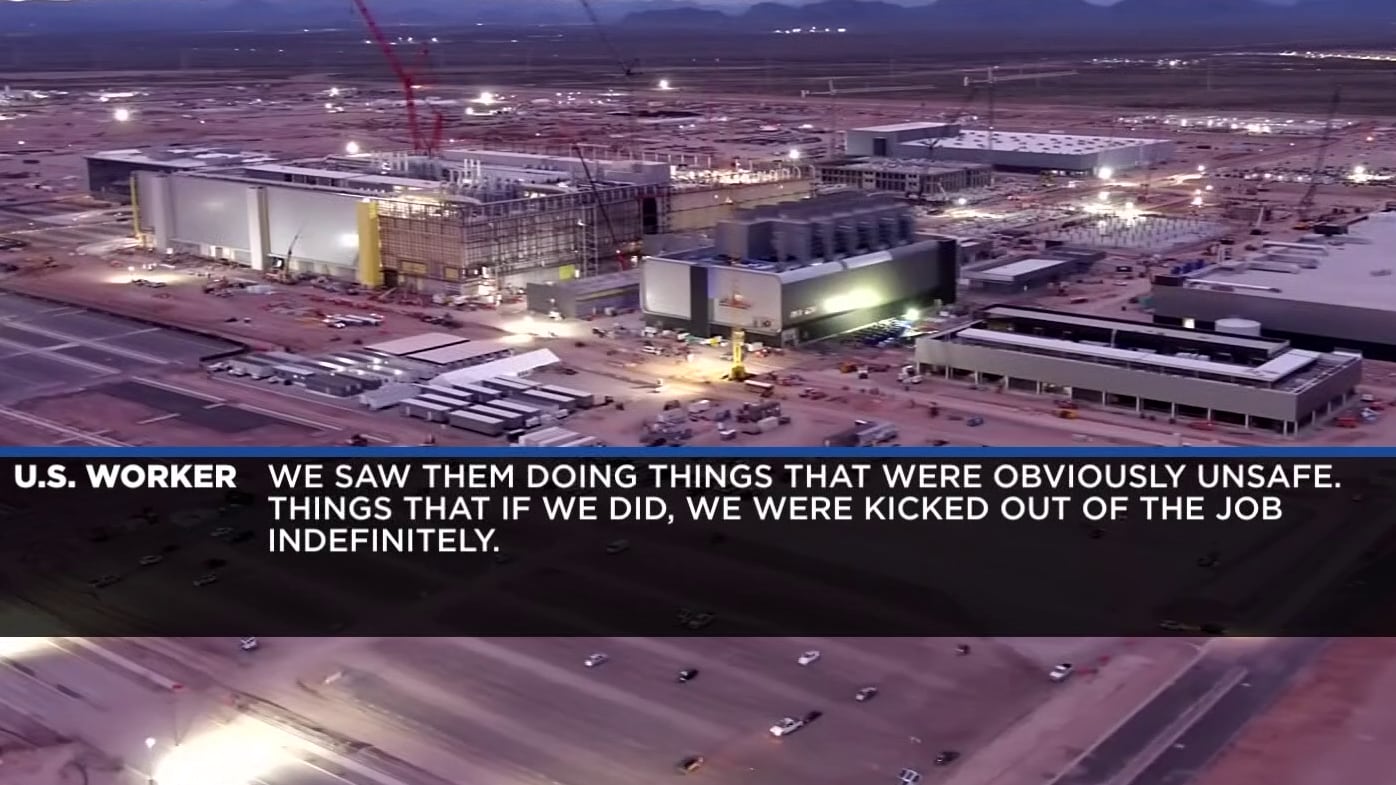TSMC Arizona lawsuit exposes alleged ‘anti-American’ workplace practices
PHOENIX (AZFamily) — More than a dozen current and former employees of Taiwan Semiconductor Manufacturing Company (TSMC) have joined a class-action lawsuit against the chips-making giant, claiming the company engages in “anti-American” bias and discriminatory practices favoring Taiwanese workers over those from the U.S.
The lawsuit claims the world’s largest semiconductor manufacturer, headquartered in Taiwan, systematically favors Taiwanese and Chinese nationals in hiring, promotion, and performance reviews while subjecting non-East Asian workers to bullying and a hostile work environment.

One of the plaintiffs is Deborah Howington, a TSMC hiring manager who claims to have witnessed the company’s discriminatory practices firsthand.
TSMC has promised to create thousands of U.S. jobs as it constructs three semiconductor “fabs” in Phoenix. The $65 billion project is the largest investment in Arizona history, and the first fab is scheduled to open in the first half of 2025.
Through the CHIPS Act, the company is set to receive $6.6 billion in federal grants and $5 billion in loans.
The lawsuit claims the company “willfully disregarded diversity commitments TSMC made in the CHIPS Act,” noting that as of last year, approximately half of TSMC Arizona’s 2,200-person U.S. workforce comprises of visa holders from Taiwan.
“If you are receiving federal funding to create jobs in the U.S.,” said Daniel Kotchen, one of the attorneys who filed the case, “it is your responsibility to live up to the rules and laws under the U.S.”
A spokesperson for TSMC said the company won’t comment on pending litigation.
“TSMC believes strongly in the value of a diverse workforce and we hire and promote without regard to gender, religion, race, nationality, or political affiliation because we respect differences, and believe that equal employment opportunities strengthen our competitiveness,” the company said in a statement to Arizona’s Family.
“We also provide various channels for employees to raise concerns, and strive to address concerns constructively,” the TSMC spokesperson added.
Related Coverage:
Ex-TSMC Arizona worker: Americans held to higher standard than Taiwan workers
More former workers at TSMC Arizona are coming forward, saying they witnessed some of the allegations at the center of a class-action lawsuit against the company.

During construction on TSMC Arizona, the lawsuit says non-East Asian workers have been “constantly berated” by Taiwanese construction managers “and expected to work long hours without pay.”
The suit quotes a process integration engineer in Arizona as saying, “the company has recently begun to bully some employees into resigning due to poor performance without proper training,” and Taiwanese locals often replace “[t]hose who quit.”
To filter out U.S. workers, the lawsuit claims job candidates are asked to provide their national origin in the application process, and job postings often list proficiency in Mandarin or Chinese as a requirement, even when it’s not essential.
The suit claims that once hired, Taiwanese higher-ups regularly speak “Chenglish” when they want to restrict information with non-East Asian employees or confuse them, preventing U.S. workers from opportunities to advance in the company.
“What we allege [is that] there is a cultural preference for one type of person, and that cultural preference, we believe, is what’s dictating their hiring, promotion, and termination practices,” Kotchen said. “The cultural preference cannot stand.”
See a spelling or grammatical error in our story? Please click here to report it.
Do you have a photo or video of a breaking news story? Send it to us here with a brief description.
Copyright 2024 KTVK/KPHO. All rights reserved.










